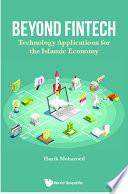
Islamic Economy and Social Mobility: Cultural and Religious Considerations
Cultural and Religious Considerations
In an era of globalization and cross-cultural awareness, an interest in the relationship between economics and religion, politics, and social behavior is alive and well. In particular, the Islamic economy has become a focal point of interest for economists and government leaders around the world interested in understanding the relationship between religion and economics among primarily Islamic regions. Islamic Economy and Social Mobility: Cultural and Religious Considerations analyzes the social, cultural, religious, and political implications of the Islamic economy at the global level. Highlighting the foundations upon which Islamic ideology is formed and how it impacts socio-cultural and economic systems both within and outside of primarily Islamic regions, this publication is an ideal reference source for economists, sociologists, international relations professionals, researchers, academics, and graduate-level students.
- ISBN 13 : 1466697326
- ISBN 10 : 9781466697324
- Judul : Islamic Economy and Social Mobility: Cultural and Religious Considerations
- Sub Judul : Cultural and Religious Considerations
- Pengarang : Shahpari, Hasan, Hasan, Hasan, Hasan, Hasan, Hasan, Hasan, Hasan, Hasan, Hasan, Hasan, Hasan, Hasan, Hasan, Hasan, Hasan, Hasan, Hasan, Hasan, Hasan, Hasan, Hasan, Hasan, Hasan, Hasan, Hasan, Hasan, Hasan,
- Kategori : Business & Economics
- Penerbit : IGI Global
- Bahasa : en
- Tahun : 2016
- Halaman : 372
- Google Book : https://play.google.com/store/books/details?id=FeJmCwAAQBAJ&source=gbs_api
-
Ketersediaan :
Islamic Economy and Social Mobility: Cultural and Religious Considerations analyzes the social, cultural, religious, and political implications of the Islamic economy at the global level.


